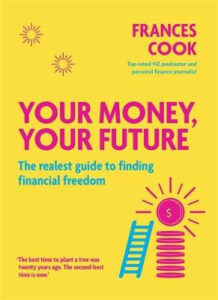
Which Company shall I avoid?
Written by R. A. Stewart
That is a question many investors ask themselves as they read the financial section of their newspaper or on a financial website., It is a fair question.
I am not going to and would never tell people to invest in this or that, but will tell you which sectors I usually give a wide berth to and why. You may think differently and I may be proved wrong. That is the beauty of the world; it is full of opinions and only one opinion turns out to be right.
Micro investing platforms such as sharesies in New Zealand and Robinhood in the USA had made share market investing accessible for the man in the street. Investors are able to purchase shares in individual companies.
As for choosing which industry to invest in, here are the ones I avoid and for good reason
- Airlines/travel
It was around the year 2000 when I bought shares in Air New Zealand. It seemed a good choice because this was a company which has been around for decades. Then the company struck turbulence. The share price slid to as low as 14 cents a share. The government bailed them out, otherwise they would have been insolvent. It was not the only time the government has bailed them out since. The pandemic has shown how vulnerable airlines are.
- Hospitality
Anything to do with hospitality is something I do not get involved in. The industry has been doing it tough since covid. The industry heavily relies on the discretionary dollar and people have become more selective in what they are spending their money on these days.
- Satellite TV
This industry is vulnerable to changing trends. People are getting more and more of their information online these days.
- Retail
The retail industry has its challenges with internet shopping being the norm. Adapt or die seems to be the rule. Retail outlets who are in a good location or are in an industry which is considered recession proof are likely to do best. PGG Wrightsons are a company which services the farming industry. They have been around for decades and are likely to, barring unseen circumstances. Farming is considered a recession proof industry, though it is vulnerable to mother nature.
- Insurance
This is another industry vulnerable to Mother Nature. We have seen from the Christchurch earthquakes of 2022 and Cyclone Gabrielle which hit the North Island of New Zealand in February 2023 that insurance companies end up paying millions in one event.
- Newspapers and magazines
This is another industry with its own challenges. Declining newspaper sales is likely to continue which makes them a poor investment.
- Fossil Fuels
Anything to do with fossil fuels is risky as many governments transition away from industries which are seen to be major polluters. This does not mean that industries which are green are good investments. It is a case of treating each investment on its own merits and not becoming emotionally involved in it.

Important rules to follow
The basic rules of investment need to be followed, they are:
(a) Do not place all of your eggs in one basket; in other words, DIVERSIFY
(b) Establish your own RISK PROFILE for your money. This will be the determining factor in choosing where to invest.
(c) Do not react to dips in the market by selling your shares or changing from growth or balanced funds to conservative funds.
If you have invested according to your risk profile then what the markets are doing should not be a worry to you. When you are deciding where to invest your money, ask the question, “If the markets dropped by 5%, 10%, or 15% how will this affect my lifestyle?”
If you have discretionary money to spare you can use this for speculative investments such as bitcoin. Investing some of your spending money in these types of investments instead of buying stuff, or alcohol, or lottery tickets can pay off. If you lost the money in cryptocurrency which you would have frittered away anyway then it will not affect your lifestyle.
About this article
The content of this article is of the opinion of the writer and may not be applicable to your personal circumstances, therefore discretion is advised. You may use this article as content for your blog/website or ebook. Read my other articles on www.robertastewart.com






















